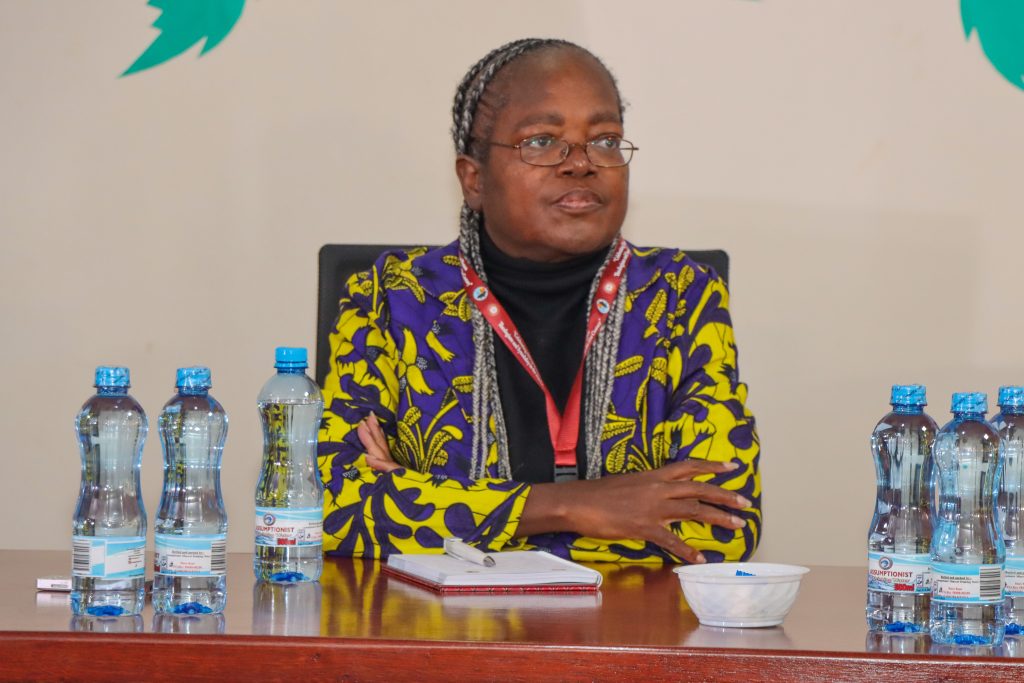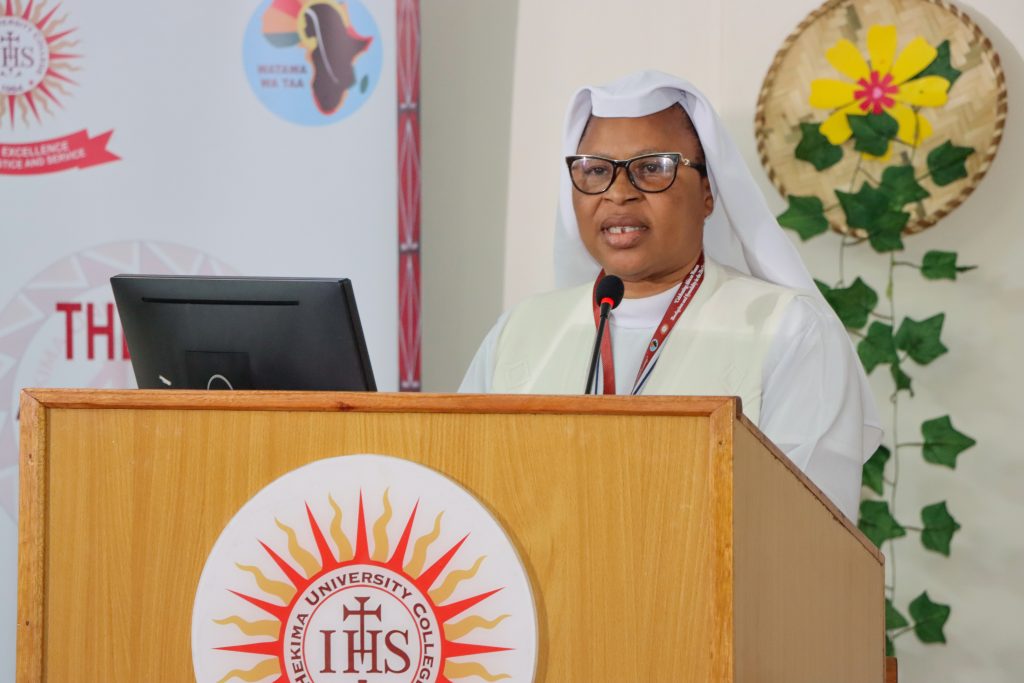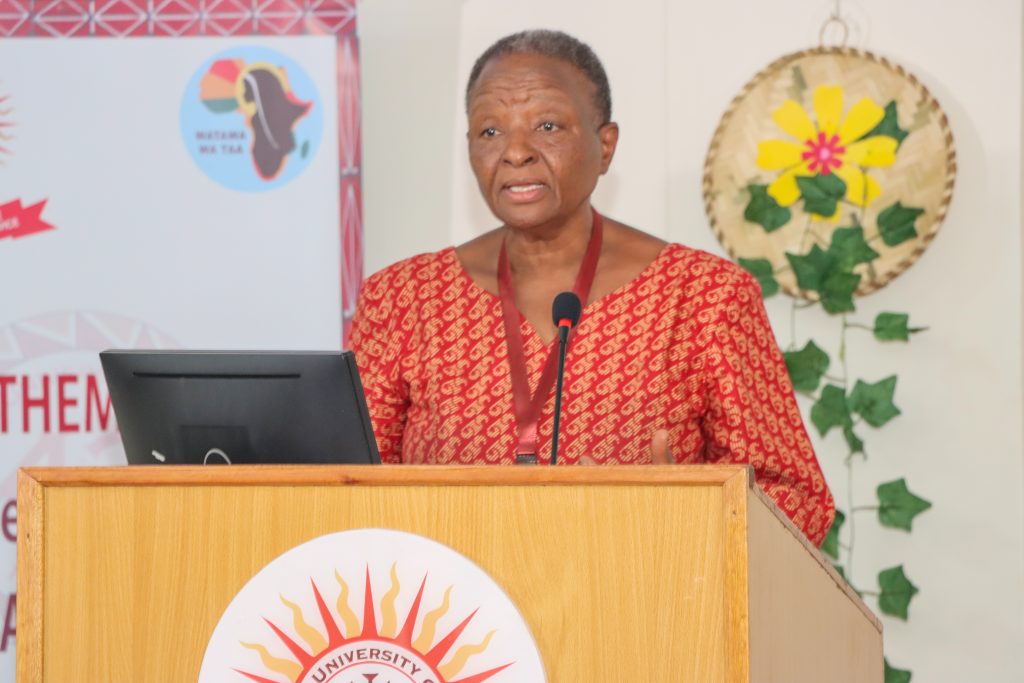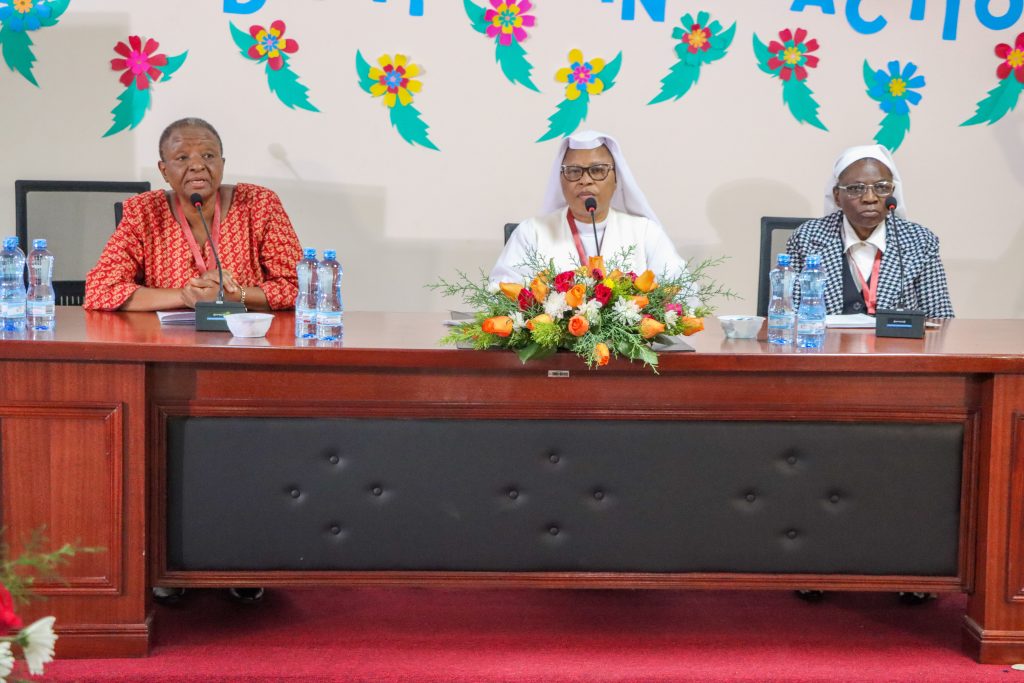The African Women Theologians Conference 2025 leadership sessions on Day One moved from critique to concrete models, as theologians argued that the Church’s governance must be reimagined, from top-down authority to shared, contextual leadership rooted in African communal life.
Speakers insisted that synodality’s promise, participation, listening and co-responsibility, requires institutional change and the adoption of leadership styles shaped by African cultural wisdom.
Dr. Nontando Hadebe (University of the Free State, South Africa) framed the argument historically and politically. She highlighted Africa’s long record of powerful women leaders, from Queen Amina of Zaria and Queen Nzinga to modern heads of state, and contrasted that political rise with the Church’s mostly male leadership. Drawing on Vatican II and recent synodal reflection, Hadebe proposed the image of the “inverted pyramid”: “Taking up the ecclesiological perspective of Vatican II, Pope Francis sketches the Church as ‘an inverted pyramid’… a ‘bottom-up, participatory’ model that reflects people-centred leadership.” For Hadebe, the inverted pyramid means ensuring “participation of all, especially women, youth and disadvantaged minorities; communion; mission-oriented justice; co-responsibility; and ecumenical collaboration.”

Hadebe urged African women theologians to claim that space. “The challenge,” she said, “is to move from individualism to community; to include grassroots women as co-creators of knowledge and advocates for action; to listen intentionally to marginalized and excluded women, leaving no one behind.” Her presentation included concrete examples of African women in political office and stressed that the Church’s governance should not lag behind societal progress on gender inclusion.
Sr. Dr. Maria Natalia Ajayi, IHM (Catholic Institute of West Africa) offered a complementary, deeply contextual proposal drawn from Igbo cultural models. Diagnosing recurring problems, authoritarian leadership, centralisation, personality clashes, and weakening communality. Ajayi argued that many congregational problems stem from colonial governance models that do not resonate with indigenous values. She presented the Ada and Umuada as alternative leadership frameworks: the Ada (first daughter) embodies moral authority, spiritual example and personal transformation; the Umuada (collective of women from a lineage) exercises communal moral authority, conflict resolution and community development.

“Every IHM leader is an Ada. Every IHM community is an Umuada Jesu,” Ajayi declared. She urged leaders to move from transactional, rule-based management to transformational leadership that fosters vision, trust and communal care. Practical steps she recommended included intergenerational mentorship, participatory governance structures, and holistic formation that develops emotional, spiritual and intercultural competence. “Leadership renewal,” she said, “means rediscovering our cultural identity, mentoring younger members, and building structures that blend individual excellence with communal accountability.”
Prof. Mary Getui returned to the theme of maternal leadership and public ethics, tying ecological and familial metaphors to governance. “The Church is regarded as the mother — the maternal face of the Church,” she said. “If we are to live Synodality, we must ask: how do we treat those who are different? How do we support younger generations like Gen Z? How do we provide warmth and companionship while breaking stereotypes?” Getui’s reflections emphasized that leadership must combine care, memory, and justice, qualities models like the Ada and Umuada illustrate.

Across the session, speakers emphasised the practical benefits of shared leadership: better pastoral responsiveness, the inclusion of often-ignored voices (women, youth, laity), and more effective evangelisation rooted in local realities. As Hadebe argued, “Synodality is a gift to Africa, a people-centred way of being Church. It aligns with African traditions of consensus and communal responsibility.”The day ended with a consensus: synodality’s success in Africa will depend on the Church’s willingness to reform its leadership culture, to decentralise authority, to institute participatory and rotational roles, and to intentionally elevate women into policy-shaping positions. “If leadership does not change,” one participant warned, “Synodality will remain an aspiration rather than a lived reality.”

